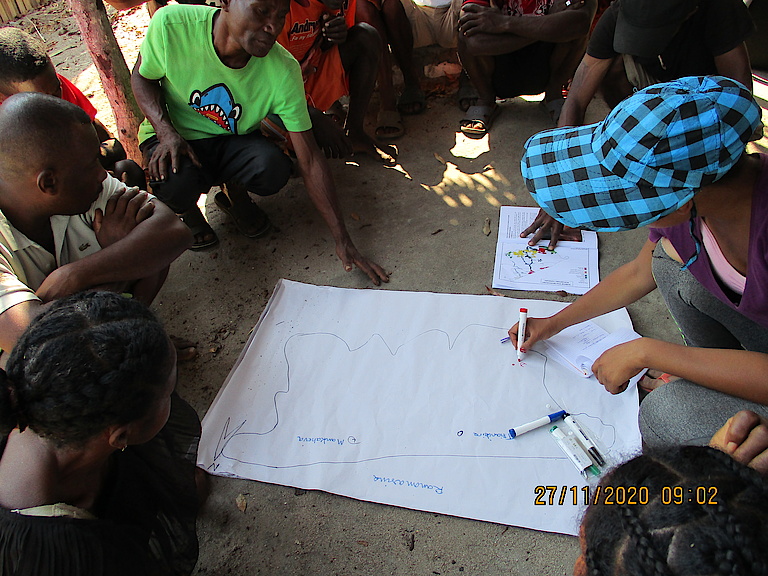Projects/Time of intervention
BioInnovation Africa (BIA) – 07 /2019 – 12 / 2025
ABS Capacity Development Initiative, upon request of the GIZ PAGE project – 01 / 2007 – 03 / 2022
Why Madagascar?
Madagascar is a long-standing partner country of the ABS Initiative and intervention country for BIA for several reasons. Here are the three principal ones:
Exceptionally diverse country: Madagascar is the world’s fourth largest island. It is home to a unique biodiversity with a high degree of endemism, has good soil and contains abundant natural resources. The Organisation for Economic Cooperation and Development (OECD) classifies the country as fragile: rapid population growth, unsuitable cultivation methods and a strong demand for wood fuel among the population, most of whom live below the poverty line, are causing progressive deforestation, soil erosion and biodiversity loss. Setting up new or improving existing value-chains with a strong focus on sustainable practices can help to put an additional value on biodiversity and thus increase the motivation of the rural population to protect and sustainably use what is left.
Large interest by the private sector community: Due to its biodiversity, the country has developed a large biotrade sector and gathered extensive experience in cooperating with the private sector. Many European enterprises have established close links to Malagasy suppliers, intermediaries and companies or even established branches in the country. The experience and relations with the international market have resulted in increasing knowledge and application of standards and certification schemes. The Union for Ethical Biotrade (UEBT), which supports enterprises to comply with the Ethical BioTrade Standard, has an office in the country and works in close collaboration with many Malagasy enterprises.
High government commitment to ABS and sustainable business engagement: Madagascar ratified the Nagoya Protocol in July 2014 and has been engaged in the national implementation ever since. A milestone was reached in 2017 with the adoption of the ABS decree, which provides the national legal framework for ABS. The Ministry in charge of ABS, the Ministère de l’Environnement et du Développement Durable (MEDD), is the primary governmental partner of the BIA project.
Aim and objectives
ABS Capacity Development Initiative: The overall aim of the ABS Capacity Development Initiative’s work in Madagascar is to support the implementation of the Nagoya Protocol in all its dimensions
Bio Innovation Africa has the following objectives in Madagascar:
- Requirements for implementation of the national regulations on Access and Benefit-sharing are improved.
- Mechanisms for using the benefit-sharing scheme for biodiversity conservation measures have been developed.
- Market potentials of selected biodiversity-based value chains are being used.
